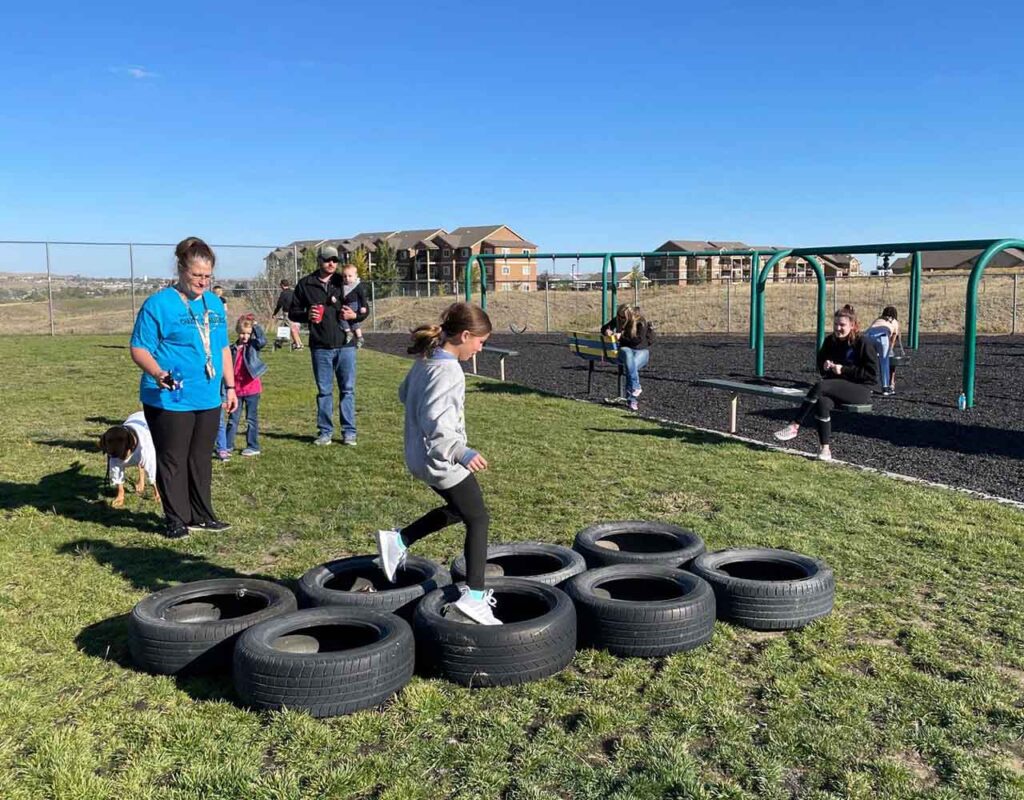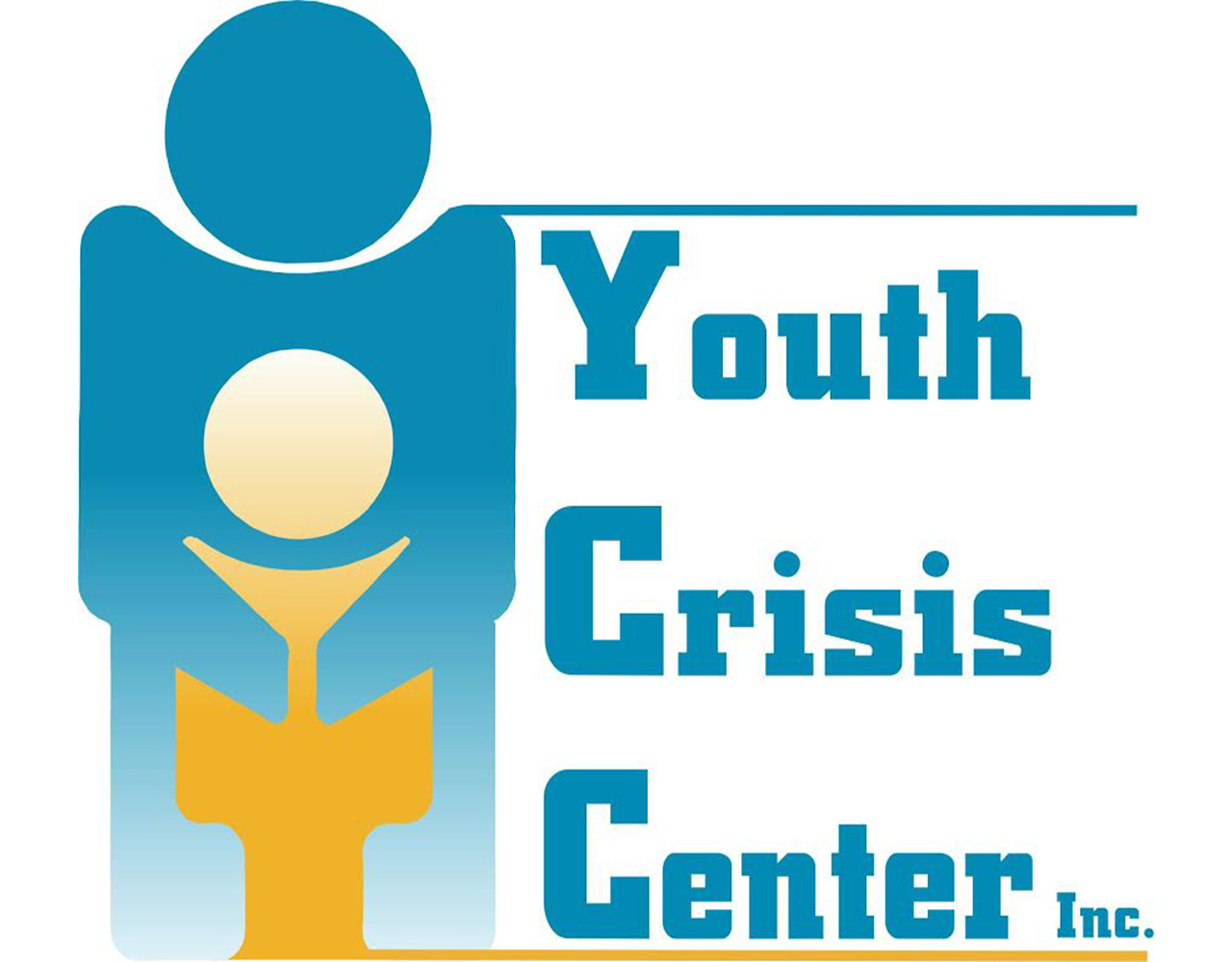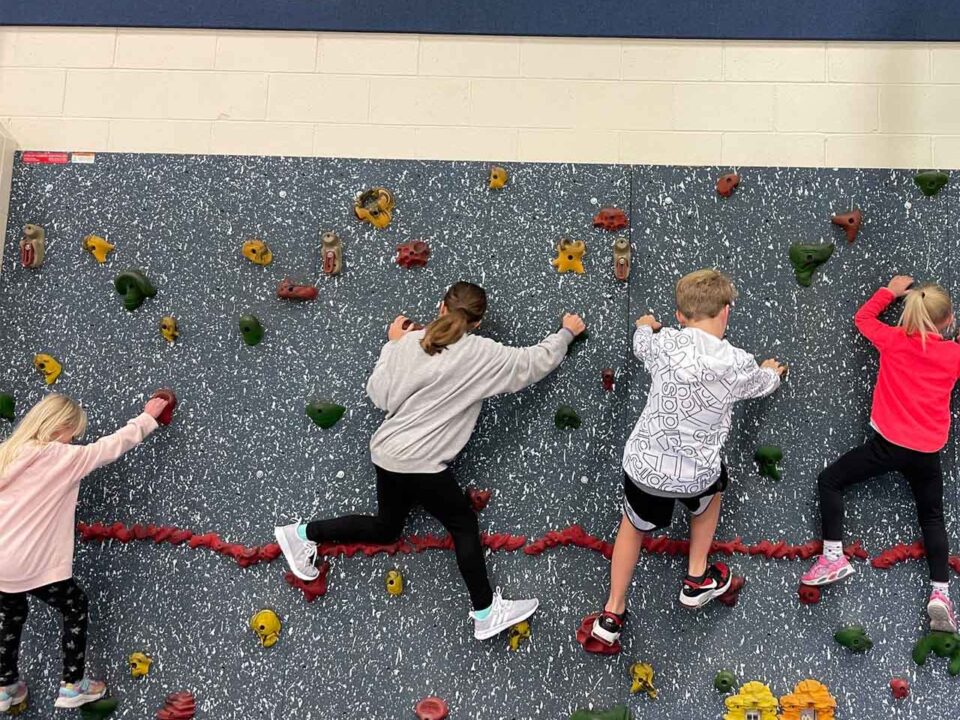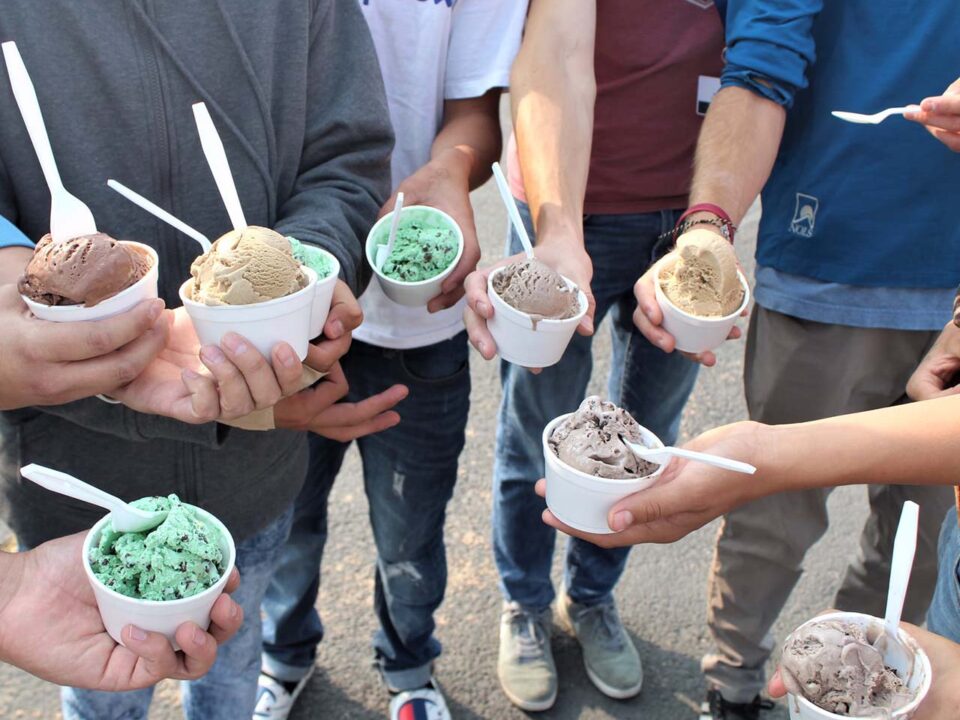An In-depth Interview with the Youth Crisis Center in Casper, Wyoming
Interviewees
David Hulshizer, Executive Director
Cheyanne Hiatt, Program Manager
Lisa Shupe, Finance Coordinator
Interviewer
Hughes Charitable Foundation
Interviewer
Okay, so, just to give a little more information, this blog is for the Hughes Charitable Foundation with the Youth Crisis Center, and we really want to provide as much information as possible to people during this month about what there is in Wyoming in terms of resources for Mental Health Awareness Month.
To kick things off, I'm just going to start with my questions, and then we can roll from there. So my first question is what is mental health awareness like for youth in Wyoming? Are they aware? How do you think that youth view mental health in our state?
Hulshizer
I think that's actually an excellent question. And I think for a lot of youth that are here in Wyoming, I think that it's very likely that they understand that they're struggling with something. They may not know exactly what it is, and where the resources are to help. And I not only think that, but I think that reaching out to parents and trying to explain to them what they're struggling with and how they're struggling can be difficult. And parents then try to find the resources as well, in a rural Wyoming setting. So I think that there's a lot that goes into it when you talk about if they know that they're struggling. Certainly there's a lot of information out there about mental health disorders, different things that could be affecting them. But really when it comes down to it, it's hard to really understand what you're facing by trying to do your own self diagnosis.
And the other thing I think that affects kids is that there's so much stuff that they see in their daily lives, especially with technology, cell phones, things like that. I mean, things that we probably figured out when we were a lot older. We had to be in our late teens, maybe in our early twenties, to see some of the things that kids are seeing now when they're 14 or 15 years old. Because of cell phones, because of the internet, because of applications. I know bullying is a huge thing that affects kids. Bullying is completely different in terms of how it's done now. I mean, some of it can be completely anonymous. Some of it can be upfront in your face. But back when I was in school a long, long time ago, bullying was usually done from one person to another, from one group to another. Now it's done primarily on social media, and that can be tough on kids. And I do think that that wears on kids.
My prior history being in law enforcement, being retired law enforcement officer, I can absolutely unequivocally tell you that youth suicides happen, they happen at a huge rate in Wyoming, and it's one of the most devastating things that a family will ever face.
And there's a lot of other pressures other than just the bullying that you see on social media. Now, if you're very curious about learning about new TikTok functions, there's a new TikTok thing out there that can actually make you look better as a person.
Interviewer
Oh my.
Hulshizer
I know. So these kids are seeing this type of stuff, and you just wonder, so I'm not good enough. I've got to use a TikTok app to make myself look better.
Interviewer
Wow.
Hulshizer
Do some research out there and you'll see that that's kind of a recent thing in the last year.
Interviewer
All right, I feel like we're already digging into this, what's the biggest challenge for youth mental health in Wyoming? What do they face? And we've talked a little about it, but I think it'd be good to just address it specifically.
Hulshizer
I think not only the daily life of a kiddo and some of the things that they face, but there's also a systematic issue and an actual current inability for people to get treatment. The biggest thing from an administrative standpoint is that in the state of Wyoming, we're struggling to find funding to provide more services to the kids that we have. A great example is that we are a facility that can actually hold up to 30 kids, but because of funding and where we're at in terms of the amount of support that we get, we're truly only able to house between 15 and 17 kids. We have the capacity, but we don't have the functional capacity with the funding in order to hire the additional people and to start these other programs that we know can be useful. So that is a huge barrier, just simply funding for not only our facility, but I think it's a common theme throughout all of the youth services, members and organizations that deal directly with youth.
The other thing that I think is a huge concern is access. Right now there's a huge void in terms of the number of clinicians and therapists that are out there and coming to Wyoming to actually provide services. Not only the therapy and the counseling, but the Addiction Severity Index testing, mental health evaluations. So kids are taking longer to find time to or it's taking longer for kids to find those services and get into those services in order to get the treatment that they need.
Now that's Casper, which is a bigger metro area or a larger area in Wyoming, imagine yourself in a smaller community, say Worland or Basin or Lovell. Imagine how much more difficult it is in those areas.
Interviewer
Yeah, for sure. Well, really most of Wyoming is one of those small towns.
Hulshizer
Funding is a big part of it – you can't conduct operations if you can't get the funding that you need, not only for the operations, but to pay people to come do the job. When it comes to salaries and things like that for clinicians, we may not be paying what other people can pay.
But it's just more than that. I think the overall programs in the state, we've got good programs, we just don't have enough of them. And we see a trend where kiddos have to go out of state for inpatient treatment. And I think there's more capacity in Wyoming, we just don't have the funding to take advantage of that capacity.
When you look at the communities as a whole, we were at the Governor's Mental Health Summit and they talked about the capacity for the state to do things. And the state had talked about their two entities that they have. One being the state hospital and the other one being the life care center. Those are kind of their things that they have boots on the ground and they have direct ties to. But what I think is lacking is an understanding of what every community has in terms of capacity and the availability to conduct services.
And I would use us an example. I mean, our capacity is 30 kids. We could have 30 kids in our facility. Our functional capacity right now is about 15. So if you were to look at it from an emergency response aspect, you want to know exactly what you could do to ramp up to utilize your capacity and utilize your services. And I think we need to really get a good handle of what's across the state, because there are a lot of nonprofits in the state that, if provided a little bit more funding or more funding in general, could be doing more. Because they have the capacity to do that. They just need the funding to do more.
Because it's going to be the nonprofits and the community providers that really make the largest impact in Wyoming, not necessarily the state organizations or state institutions.
Interviewer
I guess one of the big things that the Governor was talking about in the recent Mental Health Summit was the community aspect of mental health. And I feel like the nonprofits – that goes along with this idea a little bit – it's people from the local area seeing a need and responding to it, and like you're saying, we just need more of that.
Hulshizer
I'll say that really the nonprofits and a lot of these community practitioners or community clinicians, they're really kind of the first line responders just similar to a law enforcement officer. They're on the front lines of dealing with it every day with kids in crisis and kids in need. So the Governor is absolutely right that the community is really the first and primary point of contact for these kiddos. And if we're going to bolster a system and we're going to provide resources, that's really where we need to start. Our focus is on the places that have the most impact and that truly is nonprofits.
Interviewer
Your organization has been serving youth across the state for 40 years. What kind of change has your organization seen over the years when it comes to youth mental health?
Hulshizer
We get kiddos from all over Wyoming that come to us. Of course, granted, we serve the majority in central Wyoming, but we do get kids from all over the state. But I think that's a very good question. I think, when we first started, we really followed that juvenile justice model of where you're trying to change behavior based upon a justice system interpretation of behavioral change.
But that really has changed for us in the last five years, and very specifically in the last two years, to a clinical mental health, behavioral health model – understanding what are some of the underlying issues that these kids are facing. Behavioral health is mental health, which is a huge component.
And the other thing that is a big component that I think has really skyrocketed is substance abuse. So when you look at the kids that we're dealing with in our community and what we see here at the crisis center, a lot of them will come to us with not only an underlying mental health issue or some sort of mental health concern, but there may very well be substance abuse attached to that.
One of the disturbing things that we're seeing in the Casper area is fentanyl in our community. Not only that, but kids have access to opioids prescription medication that maybe the parents don't have stashed away. Also marijuana vaping is huge. All these substance abuse issues are affecting kids. They're affecting them even at a younger age. And you put on top of that, maybe they have a mental health concern or their parents have mental health substance abuse issues. Ultimately, it kind of keeps stacking on top of the kid, and it's just an unbearable weight sometimes. When you add substance abuse and mental health together, that's a big thing to tackle. Those are a lot of very severe issues that you've got to address, not only in adults, but also we're seeing a lot more in kids as well, our youth.
Interviewer
What do you feel is the next step, or maybe not the next step, but an important thing or the most important thing in terms of prevention for mental health illness in youth?
Hulshizer
Well, I think there's a few things. I think one of the first things is awareness. And I want to give kudos to Molly Hughes and the Hughes Charitable Foundation for all the work that she's done in terms of bringing awareness to this. And I know that I've had conversations with her, and I think that that's the goal is to continue to really focus on awareness. The more kids understand about some of these things, some of the mental health concerns that they could be facing, and that you shouldn't be stigmatized by this, that there is help. There's ways to go about finding that help, and the help does help. So awareness is a big part of it.
I think the next part of it is the discussion with the Governor's Mental Health Summit. We've had a couple of discussions in the last year. So that's very good. It's also very good that the legislators are beginning to really take note of it and beginning to address it. But, I honestly think that the biggest thing is going to be finding ways to help the local communities with either their community providers or their nonprofits or their NGOs, that are boots on the ground doing the job because the state is not going to be able to do it all themselves. The majority of the work is done at the community level, at the grassroots level, at the community provider level. So I think that finding a way to get what they need to do the job is going to be one of the biggest challenges, but may very well, if we can figure that out, have the most benefit.
Interviewer
That's how your community thrives. That's how your community builds and grows and becomes healthy, starting with the youth and kind of building it up from there.
Hulshizer
I think that we have to find strategies and ways in order to empower the youth, to continually assess themselves and assess their peers in order to help them find help. Because here's a great example. In law enforcement, it used to be a huge stigma to struggle with PTSD and other things that normally affect law enforcement officers because of things they see in their career. Well, there was a change about ten years ago when it became okay for someone to come up to you and say, are you doing okay? Do you need some help? I know that you're struggling. You didn't have to hide anymore that you were struggling because you're supposed to be this big, tough law enforcement person that nothing ever phases. When it finally became okay to talk about it, and it became okay for people to say, you know what? We're going to give you the help you need. And the stigma began to melt away. And I think that is the same with youth. It's like, how do we get that stigma to melt away? And how do we get youth to look out for one another and say, hey, if you need help, I know someone that can help, or to go to someone and say, I think this person is really struggling, they need some help.
The toughest thing, I think, in our current climate is everyone likes to utilize, hey, I care about mental health and adults, I care about mental health and kids, I care let's talk about this, let's talk about this. But are we actually putting the rubber on the road? Are your actions reflecting what you're saying rather than using it as some sort of a talking point? Do your actions and the things that you're doing in whatever scope that you have, be it at a state level or local level, if you're a community, if you're in government in one of those entities, are your actions backing that up? And the biggest part of that is helping the discussion, but helping the funding part of it. Helping come up with ideas on how to bring new providers in, helping us recruit and keep providers, things like that.
Shupe
Going back to what David was just saying about the children needing to learn or realize that mental health is their health also. And another part which we kind of touched on before is so many of them come from families that have substance abuse problems or parents that have been incarcerated. So that just adds another layer of even, I would think, difficulty for them to overcome their own stigma of their behavioral health, their mental health, because it's a familiar thing.
Hulshizer
And that's why at the Youth Crisis Center, one of the big things that we look at is trying to help heal the family. It just doesn't end at, uh, giving the kids services and therapy, counseling life skills. We do a lot of great things with our kids in terms of all of our programming, but also the additional part that we know is just as impactful is helping heal that family, which means parenting classes, family therapy, group therapy, resources for families to be more successful. I think the conversation of youth mental health has to also have some evolution of how the family plays into that as well. Because it's true, the environment at home can be very influential, but it can also be just as detrimental to a youth as well.
I think that one thing everyone can get behind, it's the fact that our kids are paramount and we need to do everything that we can for our kids. If we help them become healthy now, they're going to be healthy adults and that's going to be really good for our society, having healthy kids that become healthy adults.
Interviewer
With tools to move forward in life.
Hulshizer
Because it's not easy. Life is not easy. I think that's another thing that plays heavily upon these kids. When you look at social media and you look at things, I mean you may be following a certain celebrity and it looks like their life is perfect, right. But life isn't always that way. Life isn't easy. Life is sometimes hard. Going to school and all that isn't easy.
And that then goes to only further embrace and emphasize the importance of the family. Because you're going to go home and be with your family, you're going to be around your family. And that's why the importance of the family is ever growing.
Interviewer
Mhm, and especially in a more rural state like Wyoming, where potentially it's just harder to connect with people because they're further away. Well, this has been a great conversation, and I don't want to keep you too much.
Hulshizer
We love to share information, and we love to talk about what we do and how important it is to our community. One thing I do want to say is I want to thank you for reaching out on behalf of the Hughes Foundation, because they've been a big supporter of us, I can't applaud them anymore. I mean, they're amazing people.
Youth Crisis Center
Casper, Wyoming
www.casperycc.org
Facebook
Image Source




